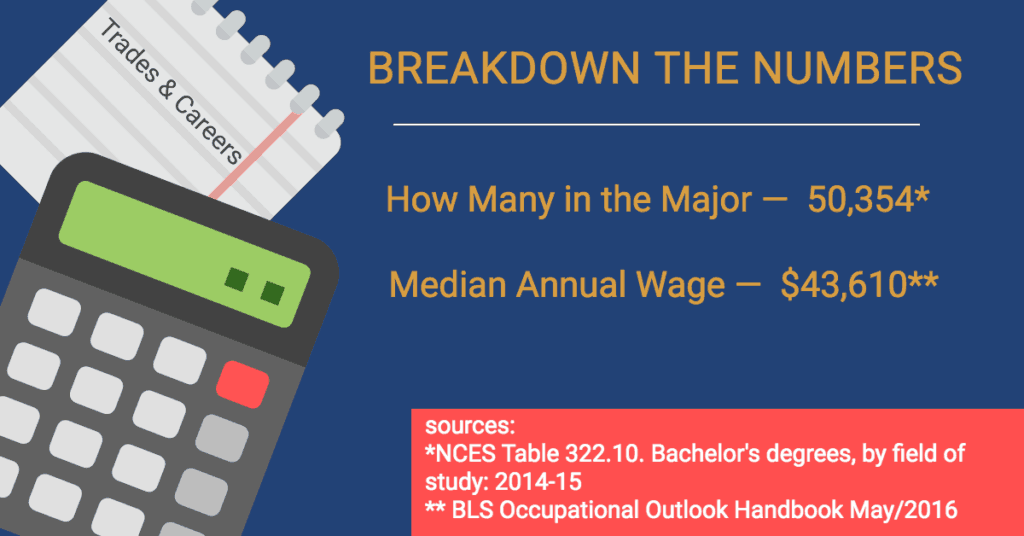
The 21st century has seen a major emphasis on professional education; tons of ink and uncountable billions of pixels have been spent on the growth of STEM education, business education, computer education, and medical education.
But one interesting development in the past two decades has been a new emphasis on vocational education – education for trades and careers. Just a couple of generations ago in the US, workers could make a solid middle-class income working in factories, but today, the manufacturing sector has dwindled. In areas where manufacturing has dried up, workers either have to accept low-paying service jobs, or go back to school chasing the carrot of a professional career, often in middle age.
But one field that remains constant is the area of skilled trades and technical careers. A trade school degree can lead to a well-paying and secure career. Plumbers and electricians still make a respectable living; auto mechanics and HVAC technicians are always in demand; and modern life grinds to a halt without commercial drivers and heavy equipment operators. Trade and career education is so important to the American economy, the Department of Education under President Obama made trade education a serious commitment.
Many young people today have seen their parents or older siblings complete conventional college degrees and fail to get the careers they want, or have their careers stall out long before they should have. That has led to a surprisingly large number of students who are not interested in going to college, and who would like to get into the workforce with more than minimum-wage qualifications. That has led to a renewal of vocational education, especially at the community college level.
The College Consensus excels in aggregating data and information about colleges and universities, and our command of the broad view of higher education and the job market makes TCC a one-stop shop for college and career choice. This guide to Trades and Careers helps tomorrow’s tradespeople, craftspeople, and technicians make the best decision for their future.
What Are the In-Demand Major Options?
The most popular vocational majors are generally in the more technical levels of healthcare or technology fields – majors like:
- Dental Hygienist
- Sonographer/Radiologist
- Cardiovascular Technologist
- Surgical Technician
or in computers:
- Web Developer
- Computer Programmer
However, some of the most in-demand programs are the most tried and true – plumbing, auto mechanic, HVAC, electrician, and other perennial careers. Culinary Arts, Hospitality, and Gardening/Landscaping are other strong contenders today.
Are There Any Online Options for Studying Trades & Careers?
Because of a limitation in resources, community colleges (the main source of trade and vocational programs, with the lowest tuition rates) have been slower in catching up to four-year colleges and universities in developing fully-online degree programs, but today many one-year certificates and two-year associate’s degrees are available online.
Even when a program can’t be completed fully online, most community colleges have a large number of foundational courses available online, making for a mostly online education.
Online trade schools, on the other hand, have boomed, though smart students need to be a bit skeptical; many of the online institutions specializing in vocational programs are diploma mills that sneak in hidden costs and pressure students into expensive programs, leaving students with a degree that costs three, four, or five times more than the same degree from their local community college.
Are There Complimentary Majors or Fields to Trades & Careers?
One of the nice things about vocational education, for many people, is how straightforward it is; you learn to do the trade or career you want, without a lot of other courses you don’t really want. However, to make the most of your career, there are some additions to your education that are worth considering.
Business/Management/Entrepreneurship – Many people working in a trade or skilled vocation will eventually want to strike out on their own and start their own business. Many will fail, because while they know their trade well, they lack business sense. A double major, minor, or just a substantial number of courses in business, management, or entrepreneurship can help you avoid the fate of many other ambitious but underprepared workers.
Computer Science – You don’t have to have a desire to become a computer programmer or network administrator; a solid grounding in computers can be an asset in many trades as well. As cars become more technologically sophisticated, for instance, so do auto garages; good computer skills help the mechanic handle the new generation of automobiles with more confidence.
Advanced or Alternative Degree Options?
Vocational education is typically thought of as a two-year degree, particularly from a community college or trade school, but in many fields, students can start working in their trades with just a one-year certificate from an alternative program.
However, once in their careers, many working adults often find themselves going back to school to complete their bachelor’s degree, and even going on to a master’s program. One particular advantage of this method is that workers get to learn more than the rudiments of their career before deciding on the more expensive and time-consuming investment of a bachelor’s degree. They can know for sure whether their career is right for them, and if they want to pursue professional-level education for a directed, goal-oriented purpose.
What Kind of Career Might I Pursue?
Unlike a conventional bachelor’s degree – where, for example, an English major may become a teacher, a writer, a businessperson, or a journalist – trade and vocational degrees are pretty obvious. If you get a degree in plumbing, you’ll be a plumber. If you get a certificate in truck driving, you’ll be a truck driver.
The biggest differences in careers for trades and vocations is whether graduates work for themselves, or work for others. The difference may be a matter of availability, personal preference, or ability; some people aren’t interested in starting their own business and would rather have the security of working for an employer, while others want the independence of being their own boss.
In healthcare or computer technology careers, the choice of starting your own business may be moot – there’s no such thing as a freelance dental hygienist after all. But for the ambitious electrician, landscaper, or truck driver, striking out on your own and starting a business can be the beginning of a lifelong personal achievement, or multi-generational family enterprise.
Required Skills or Personality Type?
Skill sets for different vocations vary widely, but, as in career paths, the personality types depend largely on whether workers want to work for an employer, or go it alone.
Good technical workers will usually need:
- Good teamwork
- Attention to detail
- Persistence
- Ability to follow complex directions
On the other hand, trade entrepreneurs and business owners also need:
- Good management skills
- Customer service
- Organization
- Bookkeeping and financial understanding

